12 million students in China will graduate this year into a shaky job market
Job seekers at one of China’s top universities say the hunt is hard this year.

At a job fair on Shanghai’s Donghua University campus, 50 firms set up booths in the school’s gymnasium. They are looking to fill just under 900 openings.
It is a tiny job fair by China’s standards.
But Donghua ranks among the top 100 Chinese universities — which means, in theory, its graduates have a leg up in the job hunt.
In practice, going to a top school is not enough, according to supply chain management grad Gao Shengqi.
“I’ve been looking for jobs for about a month, and most of them are not suitable. There were many jobs I thought I could do, but the employers said no. The jobs where employers wanted me, I didn’t want because the jobs weren’t that good,” he said.
Gao is among the 12.2 million students graduating and hoping to enter the workforce. However, they are facing shaky job prospects with the ongoing U.S.-China trade war, continuing property slump, and the accelerated use of artificial intelligence. The unemployment rate among 16- to 24-year-olds, excluding students currently studying, remains high, at 14.9% in May.
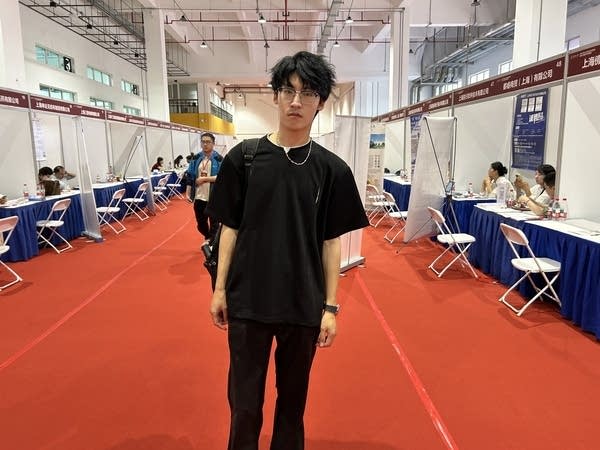
Gao, who is looking for jobs in procurement or inventory management, said he is hoping to make at least 78,000 yuan [$10,500] a year, but the offers he received were 20% less.
“That would make it hard for me to have a life in Shanghai,” he said.
China’s largest online recruitment platform Zhaopin used to publish reports on average wages firms paid to new hires in key cities. However, Bloomberg first reported that Zhaopin has quietly stopped providing wage data. A check by Marketplace confirms the last salary report from Zhaopin was in the third quarter of 2024.
Miao Jiahao graduated with a master’s in law at a different, though equally good, college. Still, he came to Donghua to check out the job fair. Miao said he is looking for a gross salary of at least 96,000 yuan [$13,400].
A securities firm offered Miao half that amount, so he turned the job down. He also rejected a second job offer from a foreign trade company.
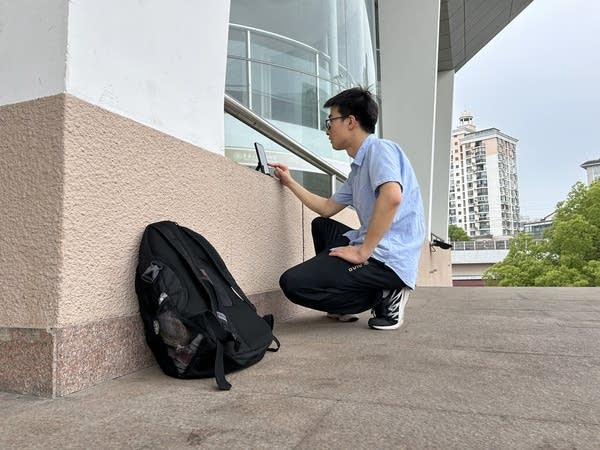
“It had a lot of negative comments from former staff on social media,” Miao said.
Like many job seekers in China, he began job hunting early, starting last fall.
“I’ve applied for over 1,000 jobs. There were not many replies — just a dozen or so,” Miao said, adding that he is looking for work in legal affairs. “There are too many law graduates and not enough suitable jobs.”
Then, he excuses himself to do a job interview. Miao goes off to a quiet corner to take the video call on speakerphone.
It is a group interview, which is common in China when there are many applicants. This adds an added layer of competition to the process and allows employers to observe, among other things, how candidates operate under stress. The interviewer gives each applicant 90 seconds to introduce themselves in front of the whole group.
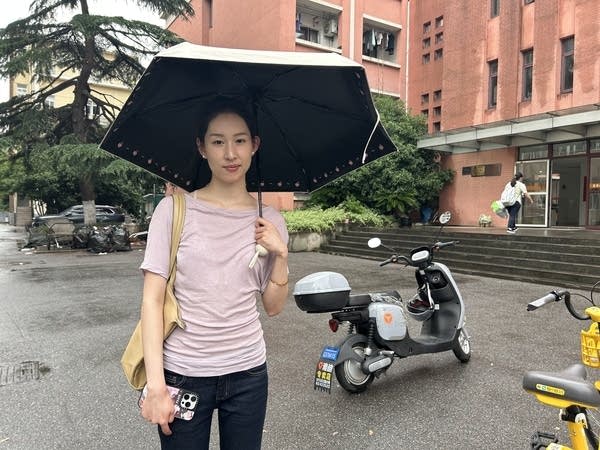
Youth unemployment dropped for the third straight month in May, according to China’s national bureau of statistics. However, compared to the same period last year, the youth jobless rate is still slightly higher by 0.7%. That has motivated Donghua University’s arts theory major Huang Yanhan to get a head start.
Even though she is not graduating until next year, she is poking around the job fair.
“I am worried because the job market overall is not good. Plus, I’m majoring in liberal arts, so some employers will have higher requirements for us,” Huang said.
Many employers in China are biased, feeling that liberal arts graduates have few practical skills.
Huang also worries how artificial intelligence might affect her future job prospects. She is planning to work in new media, where AI is already starting to upend the industry.
“I use AI in both my studies and daily life. Its ability to analyze and retrieve information is faster and more comprehensive than what humans can do,” Huang said.
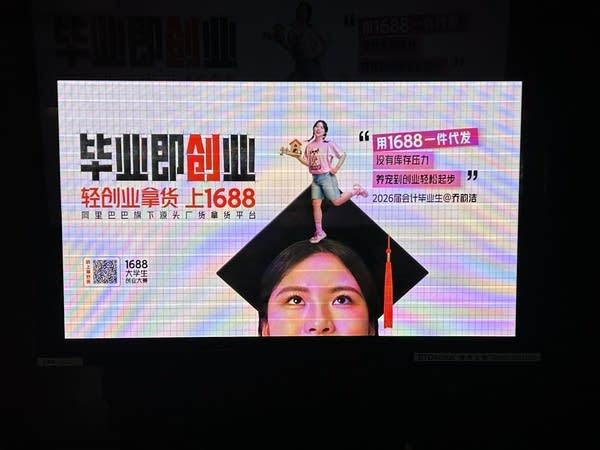
A bachelor’s degree used to give applicants a competitive edge. It did for Liu Weiyang, who graduated last year in southeast China’s Xiamen city.
At first, he attended a technical college, where he said 70% of his classmates wanted to upgrade their degrees to a bachelor’s degree. Liu followed his classmates.
“I studied animation production in technical college. Then, I majored in marine transportation just to get a bachelor’s degree,” he said.
He believes having a bachelor’s gave him an edge over his competitors, even if the jobs were unrelated to his fields of study.
“I [also] looked for jobs which accepted lower education standards, like a technical college diploma. A bachelor’s degree might have given me extra points,” Liu said.
Other students continue their education to delay entry into the workforce. During the COVID pandemic, when unemployment was higher, China’s universities introduced a scheme to allow students to get a second bachelor’s degree by studying an extra two years.
Wen Qi is among the first cohorts to graduate this year with a double bachelor’s degree in textile engineering and light chemical engineering. Still, he is struggling to find an ideal job in sales and production technician jobs in the textile sector.
“I’ve applied to many jobs before [this job fair] and by the time I got to the final round of interviews, many of the other job applicants had master’s degrees,” Wen said. “In this industry, I need to get more advanced degrees to have an advantage in job market.”
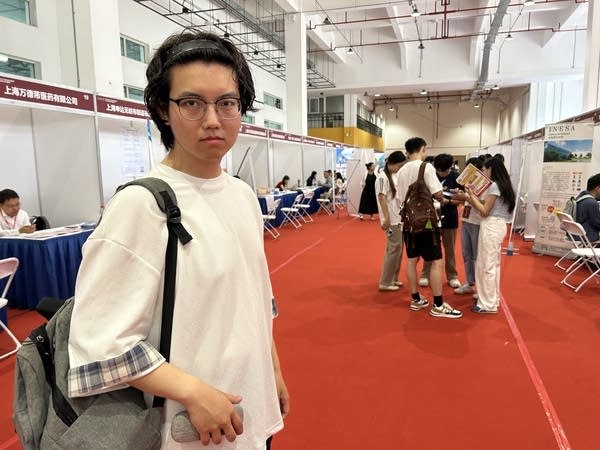
Gao, who holds a single bachelor’s degree in supply chain management, agreed.
“I’ve walked around the whole [Donghua] job fair and employers have really high requirements. Some jobs require a master’s degree or higher,” he said.
The jobs are varied in fashion, real estate, industrial safety wear and the automotive sectors.
“You want the truth? A master’s degree is not necessary for a lot of these advertised jobs,” Gao said. “Even a technical college degree graduate can do the job.”
Additional research by Charles Zhang.













